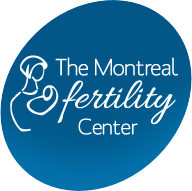Egg Donation
Egg donation may be the only treatment option for patients with an insufficient number of eggs available in the ovaries. This poor ovarian reserve could be the result of previous radiation or chemotherapy, pelvic surgery, endometriosis or genetic disorders. It could also simply be the result of ageing. Egg donation is generally the treatment of choice for older women or those who have poor egg quality.
At the Montreal Fertility Centre women needing egg donation have two options. They can either purchase frozen donor eggs from a commercial egg bank or they can find their own donor.
Purchasing from a commercial egg bank can be expensive, but the process is fast and the procedure is simple. An initial consultation is required, followed by specific tests and a psychologic assessment. This typically takes about 4 weeks. Assuming that all the results are favourable the eggs can then be ordered and the treatment can begin with the next menstrual cycle.
Finding your own donor often takes more time. The process of evaluation, treatment and the risks involved for a fresh egg donation cycle are described in detail in our section entitled Potential Donors. Egg donors generally undergo ovarian stimulation plus egg retrieval while the recipient of the egg donation cycle will have her menstrual cycle synchronized to that of the donor, so that her uterine lining is prepared to receive the embryos after the egg retrieval.
The chance of pregnancy with egg donation is related to the age of the egg donor, not the age of the egg recipient. Similarly, the chance of genetic abnormalities and miscarriage reflect the age of the egg donor not the age of the pregnant recipient. In general the live birth rate per embryo transfer with egg donation is around 50-55% if a fresh cycle is performed in a young donor, and around 40% if frozen eggs are purchased from a commercial egg bank.
